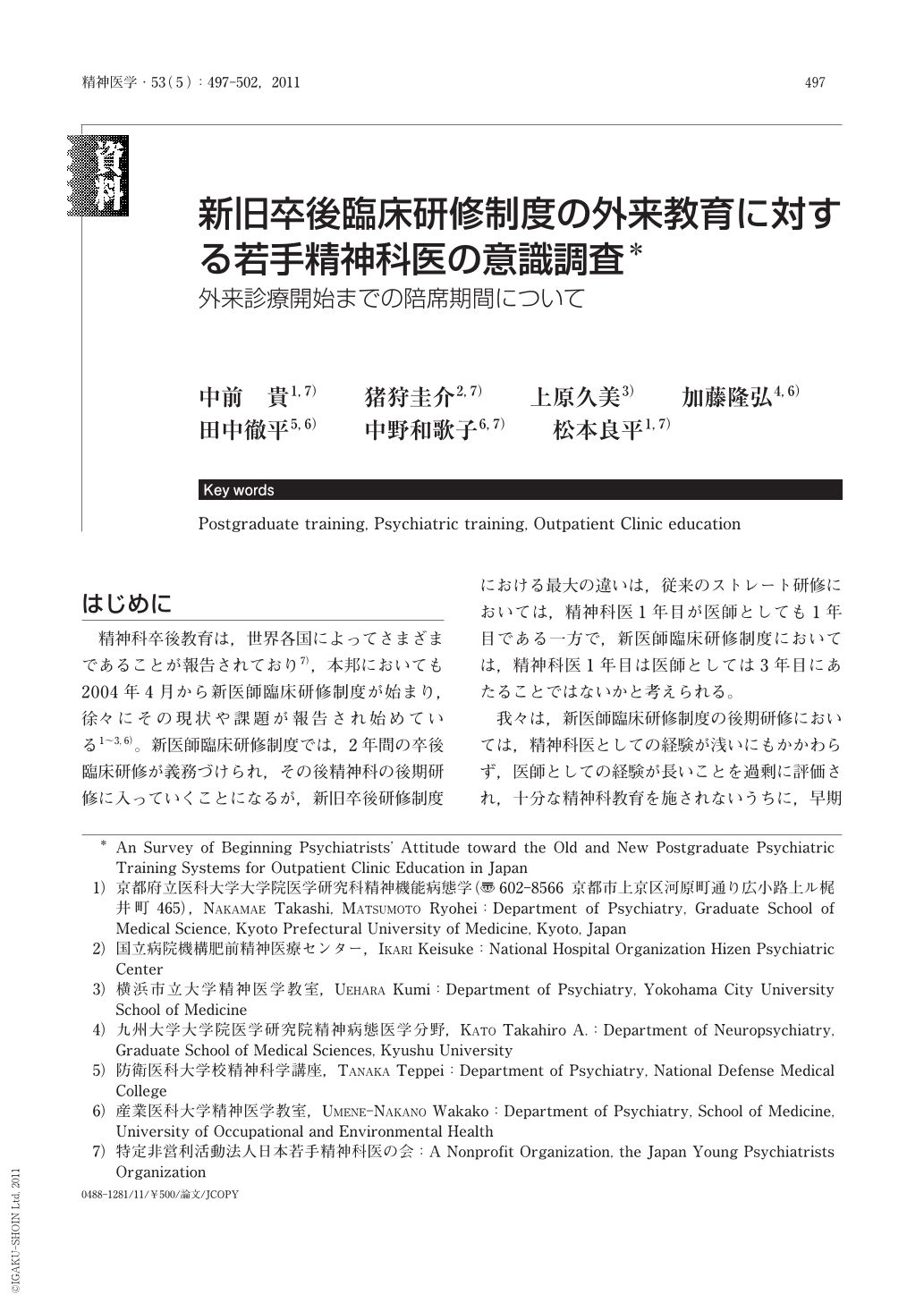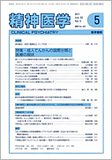Japanese
English
- 有料閲覧
- Abstract 文献概要
- 1ページ目 Look Inside
- 参考文献 Reference
はじめに
精神科卒後教育は,世界各国によってさまざまであることが報告されており7),本邦においても2004年4月から新医師臨床研修制度が始まり,徐々にその現状や課題が報告され始めている1~3,6)。新医師臨床研修制度では,2年間の卒後臨床研修が義務づけられ,その後精神科の後期研修に入っていくことになるが,新旧卒後研修制度における最大の違いは,従来のストレート研修においては,精神科医1年目が医師としても1年目である一方で,新医師臨床研修制度においては,精神科医1年目は医師としては3年目にあたることではないかと考えられる。
我々は,新医師臨床研修制度の後期研修においては,精神科医としての経験が浅いにもかかわらず,医師としての経験が長いことを過剰に評価され,十分な精神科教育を施されないうちに,早期から即戦力として診療を任される傾向があるのではないかと考えた。さらに,このことは,特に外来教育において,外来陪席の期間や,どの時期から外来診療を任せるかといった事柄に表れるのではないかと仮説を立て,外来教育に関して,外来診療開始時期,外来陪席期間とその充足度,外来陪席体制について,若手精神科医を対象とした多施設アンケート調査を行った。
We conducted a multicenter attitude survey of 226 biginning psychiatrists who underwent either the old or new postgraduate psychiatric training system in Japan. The participants had 2 to 8 years of experience. This survey investigated their attitudes toward outpatient training, their initial period of outpatient examinations, the total duration of outpatient observations and its satisfaction related to it, and the systems of outpatient observation. Their attitudes toward the old system of training were compared to that toward the new system. The two groups did not differ significantly in the initial period of outpatient examinations and satisfaction with the duration of observation. In both groups, psychiatrists tended to be satisfied with their duration of observation when it was longer, especially when it exceeded approximately 15 months. Psychiatrists who observed both new and revisiting patients were more satisfied with their training as compared to the other systems.

Copyright © 2011, Igaku-Shoin Ltd. All rights reserved.


